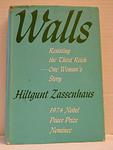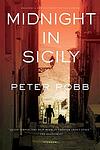The Greatest Italian, German "Nonfiction, History" Books Since 1970
Click to learn how this list is calculated.
This list represents a comprehensive and trusted collection of the greatest books. Developed through a specialized algorithm, it brings together 300 'best of' book lists to form a definitive guide to the world's most acclaimed books. For those interested in how these books are chosen, additional details can be found on the rankings page.
Genres
The category of "History" in books refers to the study and interpretation of past events, societies, and cultures. It encompasses a wide range of topics, including political, social, economic, and cultural developments, as well as the lives of individuals and groups who have shaped the course of history. History books can be written from various perspectives and may focus on specific time periods, regions, or themes. They aim to provide readers with a deeper understanding of the past and its impact on the present.
Countries
Date Range
Reading Statistics
Click the button below to see how many of these books you've read!
Download
If you're interested in downloading this list as a CSV file for use in a spreadsheet application, you can easily do so by clicking the button below. Please note that to ensure a manageable file size and faster download, the CSV will include details for only the first 500 books.
Download-
1. Danube by Claudio Magris
This literary work is a rich tapestry that combines travelogue, history, and cultural analysis, following the journey of the river Danube from its sources in the heart of Europe to its delta at the Black Sea. As the narrative meanders through various countries, it delves into the complex history and diversity of the regions along the riverbanks, reflecting on the interplay of different cultures, languages, and peoples. The book is a contemplative exploration of the European spirit, examining the river as both a physical and metaphorical conduit through which ideas and influences have flowed, shaping the continent's past and present.
-
2. The Drowned and the Saved by Primo Levi
This book is a deeply moving exploration of the Holocaust, written by a survivor. It delves into the horrifying experiences at Auschwitz, examining the psychological impact on the prisoners, the brutal behavior of the guards, and the complex moral dilemmas faced by both. The author also discusses the concept of memory and its unreliability, especially in the context of such traumatic events, and analyzes the ways in which the Holocaust has been represented and remembered in society. The book serves as a profound meditation on the human condition under extreme circumstances.
-
3. Walls: Resisting The Third Reich by Hiltgunt Zassenhaus
"Walls: Resisting The Third Reich" is a powerful memoir of courage and defiance, recounting the experiences of a young German woman during World War II who risked her life to oppose the Nazi regime. Working as an interpreter in the German courts, she secretly aided Scandinavian prisoners of war, passing along messages and providing them with hope and support. Her clandestine activities, carried out under the constant threat of discovery and execution, showcase the profound bravery and moral conviction required to resist oppression from within the very heart of a totalitarian state. The narrative not only captures the personal struggle against tyranny but also serves as a testament to the human spirit's capacity for resistance and solidarity in the face of overwhelming adversity.
-
4. The Invention Of Nature: Alexander Von Humboldt’s New World by Andrea Wulf
"The Invention of Nature" is a biographical account of Alexander von Humboldt, a 19th-century explorer, scientist, and naturalist who revolutionized the way we understand the natural world. Andrea Wulf chronicles Humboldt's travels across South America, his encounters with indigenous peoples, and his groundbreaking scientific discoveries that challenged prevailing notions of the natural world. Humboldt's ideas about interconnectedness and the unity of nature were ahead of their time and continue to influence environmentalism and conservation today. Wulf's book is a masterful exploration of one of history's most fascinating and influential figures.
-
5. Thomas Mann Heinrich Mann by Helmut Koopmann
The book provides a comprehensive study of the lives and works of two prominent German literary figures, who were also brothers. It delves into their complex relationship, contrasting ideologies, and individual contributions to literature and culture. The author examines their personal and professional journeys, exploring how their differing views on art, politics, and society reflected the broader intellectual and historical currents of their time. Through a detailed analysis of their novels, essays, and other writings, the book offers insights into the brothers' influence on each other and on the literary world, highlighting their lasting legacy in the context of German and world literature.
-
6. The Meaning of Hitler by Sebastian Haffner
This book provides an insightful analysis of Adolf Hitler's life, his rise to power, and the devastating impact of his rule. It delves into Hitler's ideology, his strategies, and the psychological factors that contributed to his becoming one of history's most infamous dictators. The book also critically examines the factors that allowed Hitler's rise and the world's response, offering a comprehensive understanding of this dark chapter in human history.
-
7. German History 1800–1918 by Thomas Nipperdey
This book offers an in-depth and comprehensive examination of German history from 1800 to 1918. It delves into the political, social, and cultural transformations that occurred during this period, exploring the rise of nationalism, the impact of industrialization, the evolution of the German states, and the lead-up to the First World War. The author provides detailed analysis of key events, figures, and movements, weaving a rich tapestry of the forces that shaped modern Germany.
-
8. Along The Ganges by Ilija Trojanow
The book is a travelogue that takes the reader on a captivating journey along the sacred Ganges River, from its source in the Himalayas to its delta in the Bay of Bengal. The narrative is rich with descriptions of the diverse landscapes, cultures, and people encountered by the author. It delves into the profound spiritual significance of the river to millions of Hindus, as well as the contemporary challenges it faces due to pollution and modernization. Through personal reflections and encounters, the author explores the complex relationship between the river and the civilization it has nurtured for centuries, offering insights into the historical, religious, and ecological aspects of this iconic waterway.
-
9. Midnight In Sicily by Peter Robb
"Midnight in Sicily" explores the rich and tumultuous history, culture, and politics of Sicily from the 1970s through the 1990s. The narrative delves into the island's deep-rooted Mafia presence, its influence on social and political spheres, and the courageous efforts of those who have stood against its power. Through a blend of travelogue, cultural commentary, and political analysis, the book paints a vivid portrait of Sicilian life and the complex web of corruption, art, history, and delicious cuisine that defines it. The author's personal experiences and observations provide a compelling backdrop to the broader historical and cultural discussions, making the work both an informative and engaging read.
-
10. Crusade and Jihad: Islam and the Christian World by Bassam Tibi
This book explores the historical, ideological, and political aspects of the Crusades and Jihad, comparing and contrasting the two. It delves into the origins and evolution of the Crusades and Jihad, their impact on Christian and Islamic societies, and their relevance in today's world. The author also examines the role of religion in conflicts and the use of religious ideologies for political purposes, providing a comprehensive understanding of these complex issues.
Reading Statistics
Click the button below to see how many of these books you've read!
Download
If you're interested in downloading this list as a CSV file for use in a spreadsheet application, you can easily do so by clicking the button below. Please note that to ensure a manageable file size and faster download, the CSV will include details for only the first 500 books.
Download








